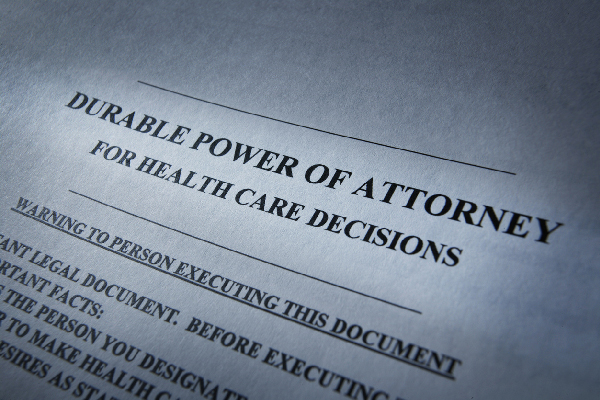
For married couples looking to protect the assets they have built together, estate planning is a must. However, if you live with a life partner you are not married to, or you are in a domestic partnership/civil union, it is equally important to create an estate plan. The fact is that marriage rates have fallen in recent years, and the number of U.S. adults in cohabiting relationships has climbed to over 18 million, up 29% since 2007. Yet, while unmarried cohabitation is growing in popularity, this can present numerous legal problems. Indeed, unmarried couples won't be able to make end-of-life decisions, or inherit from, each other. Estate planning for unmarried couples is then critical in order to ensure that you and your partner's rights are protected should the unexpected occur.
If you currently live in unmarried cohabitation with your partner and are considering how this will affect your estate planning needs, here is a look at answers to the most frequently asked questions we receive about estate planning for unmarried couples.
What Happens if Unmarried Couples Don't Have an Estate Plan?
You may find yourself wondering why exactly it is so important that unmarried couples ensure they have an estate plan. At its essence, estate planning serves two functions: to determine who can make decisions for you if you become incapacitated and to determine who gets your assets when you die. Of course, there are laws in place to protect spouses who did not make an estate plan. If one spouse becomes incapacitated, the other will be able to make healthcare decisions for them. Additionally, if one spouse dies, the property will be distributed to the surviving spouse and children. However, there are no laws in place to protect unmarried partners.
Should one partner die, the surviving partner will not benefit from their estate no matter how significant the relationship was. The deceased's assets will go to their surviving relatives, even if that's not how the deceased would have intended it. This makes it critical that unmarried couples create an estate plan that protects each other and ensures their wishes are followed once they are gone.
What About Assets We Own Together?
Unmarried couples who have been together for a significant amount of time may have acquired assets together such as a house and cars. What happens to these assets when one partner dies? In order to ensure that property passes to an unmarried partner, it is essential that you make sure that the property is owned jointly with right of survivorship. This way, when one partner dies, the surviving partner automatically owns 100% of the property. To do this, you will need to put both of your names on the asset's title documents such as a car's title or the deed to your house. Not only will this ensure that the surviving partner doesn't get left out in the cold, but this is also a good way to help portions of the estate avoid probate.
What Should Unmarried Spouses Include in an Estate Plan?
While every couple, married or not, should create an estate plan to ensure their wishes are followed once they are gone, estate planning is particularly important for unmarried couples in order to ensure you or your partner are protected should one of you die or become incapacitated. Yet, you may find yourself wondering what you should include in your estate plan in order to ensure your wishes are followed. When creating an estate plan, unmarried couples should consider including:
Wills and Trusts
One of the most important things you can do to protect your partner if you are unmarried is to create a will and/or trust, as this allows you to leave your property, assets, and belongings to the recipients you choose (including your partner). If you do not have an estate plan in place when you die, your property will be divided in accordance with your state's intestacy laws, and your assets will likely go to your children, parents, or siblings. Creating a trust/will then avoids this problem as you can specify who benefits from your estate.
You can even name your partner as the trustee of the trust, or executor of your will, as this will give them the ability to manage your estate in the event of your death. Creating a will and/or trust is the best way to ensure that an unmarried partner has the right to inherit your estate following your death.
Beneficiary Designations
Another way to protect your partner if you are unmarried is to ensure that they are designed as the beneficiary on all of your important financial accounts. Review the beneficiary designations on bank accounts, retirement funds, and life insurance policies to make sure that your partner is the beneficiary. While they will not have access to these accounts during your lifetime, they will inherit these assets seamlessly upon your death regardless of your marital status. Doing this is easy and does not cost anything, and you can alter your beneficiary designation down the road should you change your mind.
Health Care Proxy and Durable Power of Attorney

It is also essential that you include a health care proxy and a durable power of attorney in your estate plan in order to ensure your partner's rights are protected should you become incapacitated. Should you fall seriously ill or are incapacitated in any way and cannot make medical or financial decisions for yourself, the power to make these decisions will go to your closest relatives (either your parents or siblings). Not only will your partner not have any say in how your affairs are handled, but your relatives could even freeze them out and not include them in the decision-making process at all. In fact, unmarried individuals can even be barred from visiting their partner in the hospital without the proper legal documentation in place.
A durable power of attorney and health care directive will then ensure that your partner will be allowed to visit you, take care of your finances, and make end-of-life healthcare decisions for you, should you fall ill.
Learn More About Estate Planning for Unmarried Couples
With unmarried cohabitation on the rise, it is important that unmarried couples are aware of the steps they need to take to ensure their rights are protected should their partner die or become incapacitated. Feel free to contact us to learn more about the steps that you should take when estate planning to ensure that you and your partner are protected should one of you fall ill or die.
For more information please request a copy of our Legal Services Schedule (PDF format).
![]()